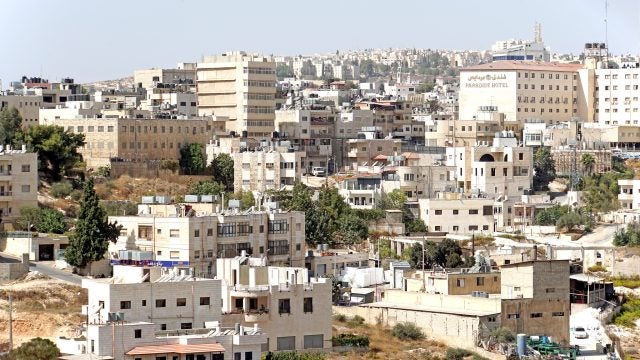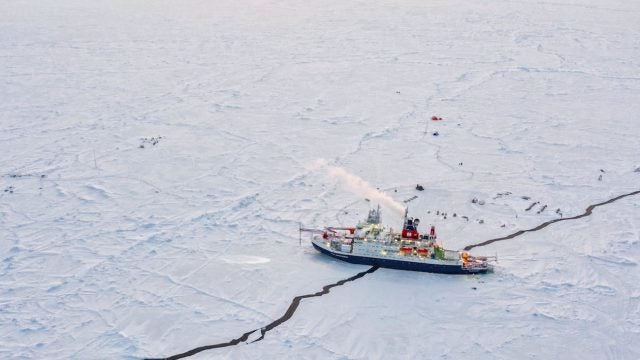
Title: President Karzai’s Wish List and New Delhi’s Strategic Volte-Face in Afghanistan
Over the past decade, India has carefully nurtured the image of a committed friend in Afghanistan. Its diplomats quickly returned to Kabul in 2001 after the overthrow of the Taliban regime to help rebuild the war ravaged country. Since then, New Delhi has emerged as Afghanistan’s fifth largest bilateral donor, with a pledge of $2 billion in various aid and developmental programs. The development aid and assistance, mostly delivered through the Afghan state and locals has accrued tremendous good will among the Afghans. The two countries signed a strategic partnership agreement in 2011, and a year later, New Delhi hosted an investment summit for Afghanistan to change the narrative from one of pessimism to one of opportunities in trade, transit and regional connectivity. President Karzai—since assuming power—has visited India twelve times, the last visit having taken place in May 2013.
In this context, India’s lackluster responses to Afghanistan’s repeated requests for military hardware assistance, including one on Karzai’s wish list during his last visit, is surprising. Far from representing a principled opposition to an overt military involvement in Afghan affairs, New Delhi’s policy could be symptomatic of the absence of an alternate plan of action in the war-ravaged country.
However, with little policy planning and preparedness, New Delhi be compelled to respond to a wide range of unfolding scenarios as Afghanistan heads for transition (inteqal) in 2014. Although Afghanistan’s political and strategic landscape has undergone drastic changes—with multiple attempts to restore some semblance of order—since President Barack Obama’s announcement of drawdown of international forces in 2009, uncertainty largely looms over the outcomes of the ongoing inteqal process. The complex interplay between the different actors, over developments involving jockeying for power, would put forward a range of options allowing India to either retain its present level of engagement into the transformational decade (2014-2024) or compelling an abrupt end to its presence in that country.
Scenario 1. Smooth Political Transition
India’s continued presence in post 2014 Afghanistan hinges on its smooth democratic transition, following a free and fair Presidential election in April 2014. The Afghan National Security Forces (ANSFs), with continuing assistance from the international community and the residual American forces in Afghanistan, are able to thwart the insurgent attacks and maintain a semblance of security in the country. New Delhi would be able to maintain a ‘business as usual’ policy and could even expand its presence in Afghanistan. Any variation to this scenario could be the precursor to a period of chaos and anarchy, endangering the fragile gains of the last decade, but also the long-term interests of countries like India.
Scenario 2. State of Anarchy
The presidential elections scheduled for April 2014 are either delayed indefinitely or are marred by widespread malpractices and fraud, thereby discrediting the new Afghan president. Alternately, a nominee or successor of Mr. Karzai assumes presidency or President Karzai extends his term by amending the constitution or by convening a Loya Jirgah. The opposition political groups as well as the influential and power brokers would use it as a staging post to call for a regime change leading to conditions of civil war. It would be a case of high-risk involvement with diminishing returns, and would gradually come to represent a ‘stale-mate.’
Scenario 3. Gradual Fragmentation/ Disintegration
With a weak or illegitimate President in power, the drawdown of the international military forces allows the insurgents to mount serious security challenges. The ANSF could cede significant ground to the insurgents by retaining limited control over cities and highways. However, the rural countryside, particularly in the south and east, would come under the Taliban control. India’s presence will be severely restricted. It can either choose to continue to operate under the constraints, with hopes of deepening its engagement with other political groups and tribal networks, or will need to work with other regional alliances (Russia and Iran) and trilateral arrangements (the United States, Iran, and China) to protect its security and economic interests.
Scenario 4. Taliban Takeover
A precipitous withdrawal of international forces could facilitate a complete Taliban take over. Any secretive deal or power sharing arrangements with the Taliban might make this possible and could unveil the worst-case scenario. India will have little option other than to wind down its operations and strengthen its security along the Indo-Pakistani border.
Conclusion
New Delhi’s current policies remain glued to the best-case scenario, precluding the possibilities of an extremist return to Kabul’s power centre in a form that reverses India’s engagement in that country. While some attempts have been made to generate a regional solution to the Afghan problem, New Delhi’s measured detachment from the worst-case scenarios does not allow it to revisit its policies that could sustain a democratic regime and ensure the protection of its primary national interests in Afghanistan.
A policy of self imposed restrictions, heeding to regional sensitivities or playing junior partner to the great powers, has imperilled its strategic objectives and has led rise to real dangers of sabotaging a decade long engagement in Afghanistan. New Delhi aspires to be a major power in the sub-continent. Much of this rhetoric, however, is bound to meet its litmus test in Afghanistan in the coming months.
Image Credit: Prime Minister’s Office (GODL-India), GODL-India <https://data.gov.in/sites/default/files/Gazette_Notification_OGDL.pdf>, via Wikimedia Commons
This is an archived article. While every effort is made to conserve hyperlinks and information, GJIA’s archived content sources online content between 2011 – 2019 which may no longer be accessible or correct.
More News

Critical maritime infrastructures (CMI), and in particular undersea communication cables, are increasingly under threat of attacks by malign actors who benefit from asymmetric capabilities and jurisdictional complexities in the maritime…

This article explores how the Palestinian crisis and the death of the two-state solution endangers the Hashemite Kingdom of Jordan. It illuminates the complicated relationship between Jordan, Israel, and Palestine…

This article explores the uncertain future of Arctic governance amid shifting global geopolitics. It argues that whether Washington and Moscow opt for confrontation or cooperation, multilateralism in the Arctic…